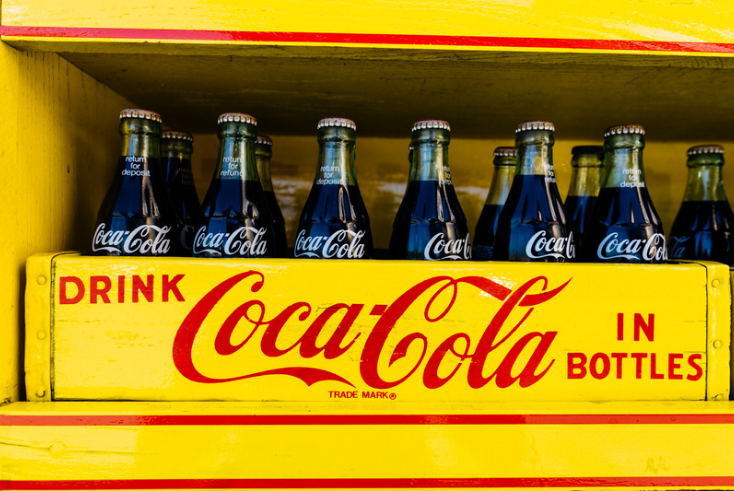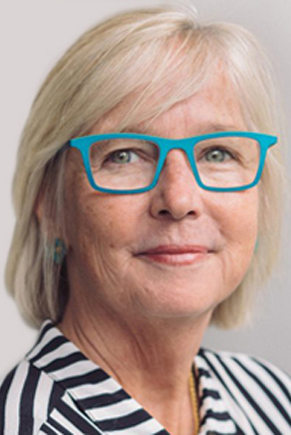Brand values will be tested by war

Media Leaders
As the conflict in Ukraine continues, brands will find it increasingly difficult to follow a neutral path.
At Mediatel’s Year Ahead conference on 23 February there was much joshing about how the panel of 2020 hadn’t predicted the COVID pandemic.
A reminder of the perils of trying to anticipate events no matter how well-founded in economic trend data, scheduled sporting fixtures and the political cycle.
It was an afternoon which celebrated leadership across the industry. There was an atmosphere of optimism in the air. Fuelled by the energy of being in a busy room, experiencing people fully and not just an onscreen head and shoulder shot.
Combined with the sense of comradeship that comes from having survived something together. Here we were emerging the other side, able to celebrate the good stuff that has been happening and looking ahead to the 2022 World Cup and ever-changing media landscape.
The following day the Russian military invaded Ukraine. Less than a week later, Putin reminded the world that he had nuclear weapons and the EU, UK and USA had mobilised a financial and economic war with Russia.
Now we are gripped by horrifying pictures of conflict in Europe not seen for generations. So soon after witnessing the desperation of Afghans trying to flee the Taliban regime, once again we see frightened men, women and children battling the cold to escape from Ukraine.
We will all feel this war
Every day we hear the words ‘unprecedented’ with reference to the level of economic and financial sanctions being deployed against the Russian regime.
There is no escape from this war. Whether because we have friends and work colleagues based in Ukraine and Russia we are concerned for or the business disruption that will come with the fallout from sanctions.
There will be pain and suffering on an unimaginable scale for months and possibly years as the brave Ukrainians fight back.
Helping staff in a war zone
Our news channels give us the big picture. The likely impact on energy prices, food supplies and an influx of distressed refugees looking for housing, schools, and jobs.
Companies with operations in Ukraine have had the unenviable task of trying to reach colleagues to find out if they are safe.
Ben Page, CEO of Ipsos, described holding a Zoom call on the first day of bombing to find 70 people in their office in Kyiv unable to get medicine, already huddled in a basement and trapped with roads impassable due to shelling. Their communication link with their employer a lifeline of hope.
Not tarring all Russians with the same brush
Leadership teams inevitably hear from Russian staff who are both for and against what is happening and have to try to manage the subsequent fallout in working relationships.
I know of a multinational whose usual reporting lines had their Ukrainian management reported into their Russian business unit. It had to be changed immediately.
Communication teams have been grappling with what public statement their company should make.
Walking the tightrope of trying to keep neutral in the sense of condemning the invasion because it is a breach of international law without getting into publicly banning activities in Russia or condemning all its people.
To stop trade hurts both sides
The UK and EU government sanctions are designed to target the Russian assets which fund their military operation.
They have not called for a boycott of all trade with Russia, not least because we still need to buy oil and gas supplies from them.
The corporate world is left to answer the question as to how they approach established supply chain relationships with Russia for themselves.
Employees across the world have been demanding explanations from their leadership as to the plans for ongoing operations in Russia.
We know the Russian people are not to blame for the current situation. Just as we don’t suddenly hate the Compare the Market meerkats but can appreciate the sensitivity of the company not airing them during news bulletins.
And yet continuing to trade normalises the war.
Global brands are immediately exposed
Those international companies are also faced with a dilemma as to how to navigate the emerging movement of calls for consumer boycotts.
McDonald’s was one of the first western brands to open in Moscow in 1990 and owns the vast majority of its 847 restaurants in Russia. Pepsi is also notable as one of the few Western products originally allowed in the Soviet Union.
Both companies have about 4% revenue exposure to Russia, and they will now have to weigh up the merits of protecting their Russian business and consumers relationships with their brand reputation in the rest of the world.
Whilst both McDonald’s and PepsiCo have been silent so far, Coca Cola last week announced they were making a significant donation to the Red Cross.
Nevertheless, they been heavily criticised for continuing their operations in Russia and face calls for their brands to be boycotted as a result.
We know that consumers’ relationship with brands are emotionally-driven.
At a time when people feel helpless to do much to help, boycotts may become an important vehicle for them to send a message to Russia.
All these companies will certainly feel the impact if consumers in western countries stop buying their brands in large numbers.
There is merit in being decisive
There are a number of multinational companies like Apple, Nike, IKEA and H&M who have closed their operations in Russia for now.
In contrast to Coca-Cola and Pepsi, they are benefitting from positive media coverage and building a momentum for others to follow their lead, at least until the situation becomes clearer.
As it turns out, removing Russian Vodka from the shelves is largely symbolic as it is mostly distilled outside Russia.
But we can be sure people will be more and more interested in the provenance of their brands and will remember what action they took.
Russian culture will have new meaning
Last week I managed to get to a production of Tchaikovsky’s Swan Lake at Covent Garden.
Before the curtain rose, we were told that to allow a moment of reflection, the Opera House orchestra would play the Ukrainian national anthem in tribute.
The audience immediately took to their feet as the unfamiliar and solemn tune played. Finishing to heartfelt applause.
The curtain went up and the great Russian ballerina Natalia Osipova stepped onto the stage. Also, to huge applause. A moment of enormous poignancy.
Politics and the arts
 Jan Gooding
Jan GoodingSwan Lake has a long history of being entwined with Russian politics. For many Russians, the opening strains of Tchaikovsky’s score are as likely to remind them of political upheaval as they are the beauty of classical ballet.
Apparently, Swan Lake was used to interrupt TV programming during Soviet political upheaval so frequently that seeing it on television became a tip-off that all was not well in Moscow.
I found it difficult to watch the ballet unfold without seeing Ukraine represented in the story of the white swan.
A metaphor I want to resist because of its dark ending. But it did make me think about the importance of stories, music, and culture as we try and make sense of our values.
The arts help us to access our shared humanity.
Politics and sport
The world of sport has already had to go further than ever before as they discovered the old-world pragmatism of allowing individuals to disassociate themselves from their country and compete under a neutral flag was deemed unacceptable.
FIFA and the Paralympic Committee quickly discovered that athletes were simply not prepared to compete against Russian teams in a show of solidarity with Ukraine.
During the Cold War, sport and culture were used to build relationships and understanding with the Soviet Union.
And yet today even the Eurovision Song Contest will not allow Russia to compete in this year’s competition.
Like nations, brands with purpose also create a sense of belonging and project values people want to identify with. Or not.
I suspect brands will find it increasingly difficult to follow a neutral path.
Over the next days and months, brands are going to be forced decide where they stand and then live with the consequences.
Jan Gooding is one of the UK’s best-known brand marketers, having worked with Aviva, BT, British Gas, Diageo and Unilever. She is now an executive coach, chair of PAMCo and Given. She writes for The Media Leader each month.
Media Leaders: The Media Leader‘s weekly bulletin with thought leadership and analysis by the industry’s best writers and analysts.
Sign up for free to ensure you stay up to date every Wednesday.



